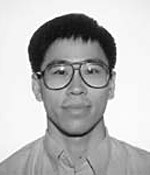
Joachim Li, MD, PhD
Professor
Department of Microbiology and Immunology
+1 415 476-3841
Research Overview:
Our lab would like to understand how eukaryotic DNA replication is regulated and coordinated with other events in the cell division cycle. Two major questions challenge us: what are the steps governing a cell's entry into S phase, and how is replication limited to one round per cell cycle? Answers to both questions demand a molecular understanding of the mechanism of replication initiation. We are currently studying this mechanism in the yeast Saccharomyces cerevisiae , but eventually hope to extend these efforts to multicellular systems. Several different components have been implicated in the initiation of DNA replication in yeast. First and foremost is a multiprotein origin recognition complex (ORC) that specifically recognizes yeast origins of replication. We initially identified one member of this complex as a component that interacted with yeast origins in a one-hybrid assay. ORC appears to bind the origin throughout the cell cycle. It is thought to serve as a "landing pad" for other initiator proteins during the assembly of a higher order pre-replicative complex in early G1 phase. Activation of this complex later at the beginning of S phase is believed to trigger initiation. We are applying a combination of biochemical, genetic, and molecular biological approaches to understand both the formation of the complex and its activation. One major focus of the lab is the isolation and characterization of the pre-initiation complex. Although genetic analysis from our lab and others has identified several potential members of this complex, the precise structure, composition, and biochemical properties of this complex await further definition. A second major focus is understanding how the cell cycle controls both the assembly and activation of this complex. For example, we have shown that the master regulator of the cell cycle, CDC28 kinase, can inhibit assembly of this complex by targeting initiator proteins required for this assembly. This inhibitory activity, which is confined to later stages of the cell cycle, is capable of preventing re-replication once S phase has been initiated. Finally a third goal of the lab is to recreate the various steps of initiation in vitro . This would allow us to dissect each step at a molecular level and hopefully reveal the biochemical function of each initiator protein as they work in concert with other initiator proteins.
Primary Thematic Area:
Cancer Biology & Cell Signaling
Secondary Thematic Area:
None
Research Summary:
Regulation of Eukaryotic DNA Replication
Websites
Publications:
